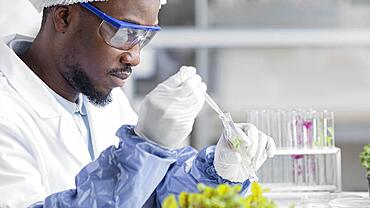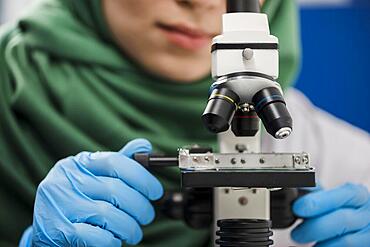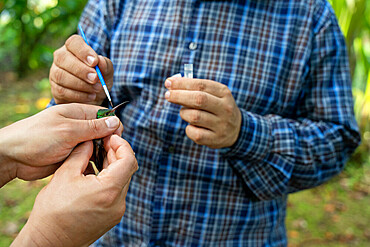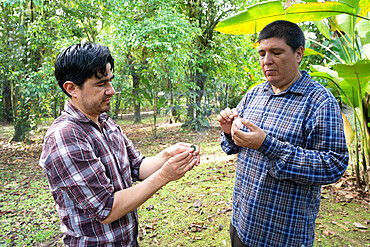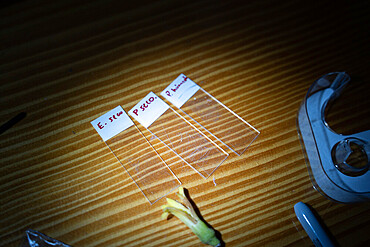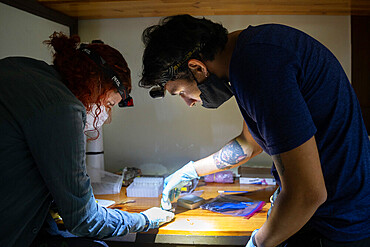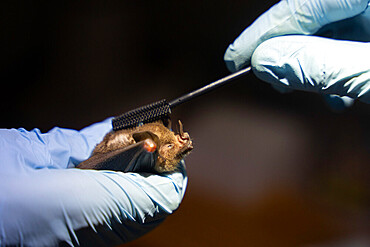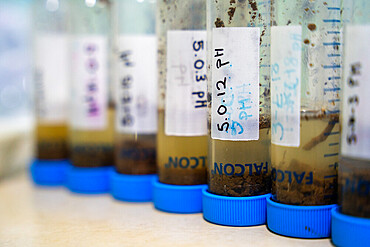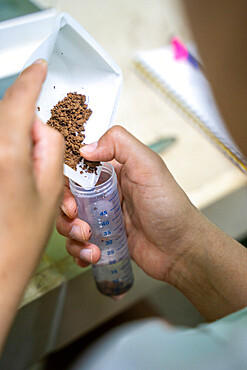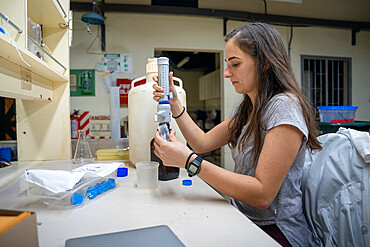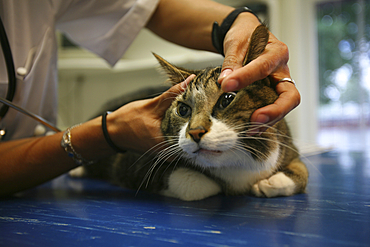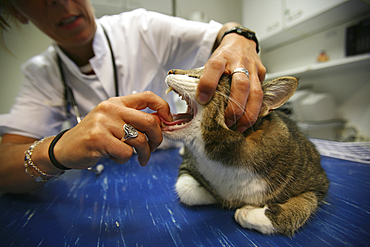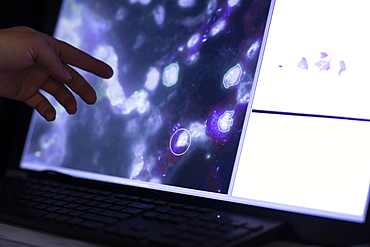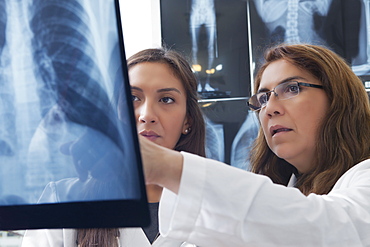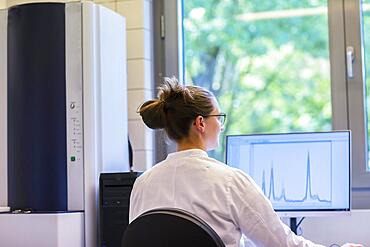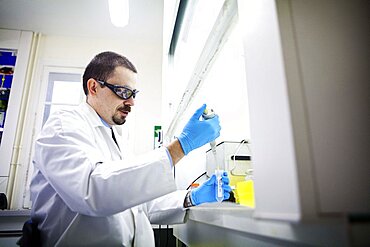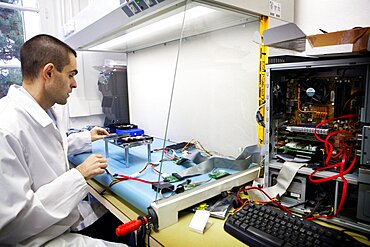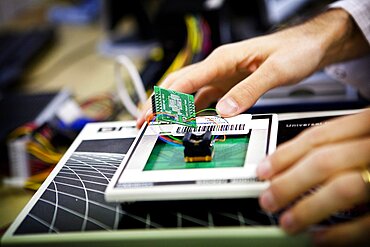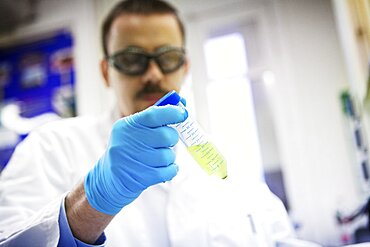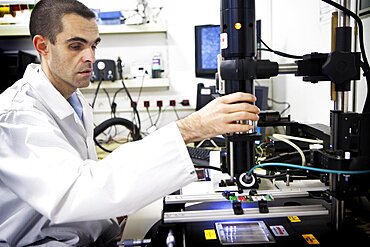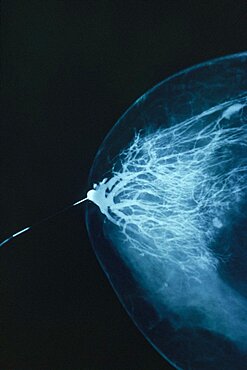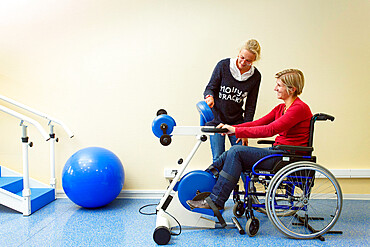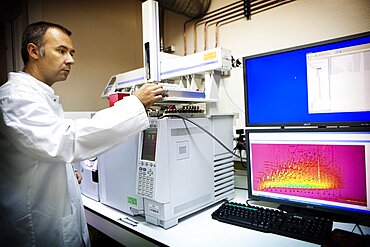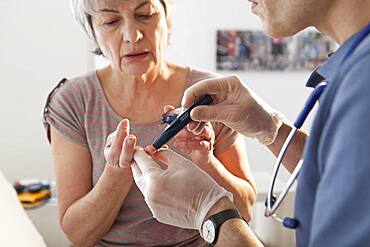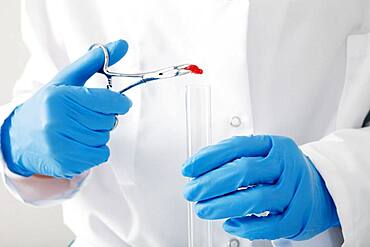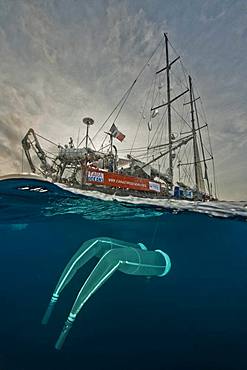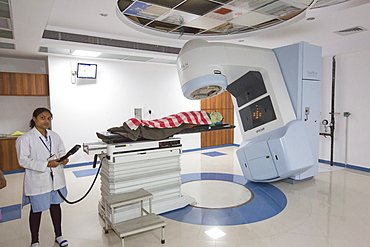Recent searches
Loading...
832-404441 - Digital nomad with laptop on veranda of tiny log house
832-403677 - Side view researcher biotechnology laboratory with plant test tube
832-403667 - Female scientist with hijab working lab with microscope
832-403807 - Female scientist with hijab microscope laboratory
860-291440 - Researchers picking up pollen with a brush from the beak of a hummingbird Stripe-throated Hermit as part of a pollination study, rainforest at the "La Selva" research station in Puerto Viejo de Sarapiqui, Costa Rica
860-291438 - Researchers picking up pollen with a brush from the beak of a Rufous-tailed hummingbird as part of a pollination study, rainforest at the "La Selva" research station in Puerto Viejo de Sarapiqui , Costa Rica
860-291437 - Researchers picking up pollen using tape on the beak of a Rufous-tailed hummingbird as part of a pollination study, rainforest at the "La Selva" research station in Puerto Viejo de Sarapiqui, Costa Rica
860-291430 - Researchers applying a mascara brush to the hairs of a Sowell's short-tailed bat (Carollia sowelli) to test methods to capture pollen that bats may carry as part of a pollination study, rainforest at the "La Selva" research station in Puerto Viejo de Sarapiqui, Costa Rica
860-291429 - 3 microscope slides to analyze pollen transported on bat hairs, "La Selva" research station in Puerto Viejo de Sarapiqui, Costa Rica
860-291427 - Researchers applying tape to the hairs of a bat to test methods to capture the pollen it carries as part of a pollination study, rainforest at the 'La Selva' research station in Puerto Viejo de Sarapiqui, Costa Rica
860-291428 - Researchers applying a mascara brush to the hairs of a Sowell's short-tailed bat (Carollia sowelli) to test methods to capture pollen that bats may carry as part of a pollination study, rainforest at the "La Selva" research station in Puerto Viejo de Sarapiqui, Costa Rica
860-291422 - Earth diluted with water in order to extract the PH from the soil as part of a study on nitrogen exchanges between bacteria and the roots of legumes in the tropical forest of the "La Selva" research station in Puerto Viejo from Sarapiqui, Costa Rica
860-291420 - Earth diluted with water in order to extract the PH from the soil as part of a study on nitrogen exchanges between bacteria and the roots of legumes in the tropical forest of the "La Selva" research station in Puerto Viejo from Sarapiqui, Costa Rica
860-291419 - 27-year-old researcher working in a lab on nitrogen exchange between bacteria and the roots of legumes in the rainforest at the "La Selva" research station in Puerto Viejo de Sarapiqui, Costa Rica
832-398521 - Female doctor vaccinating her colleague
1350-6424 - Mature scientist male in his 50s wearing a lab coat looking through a microscope in a laboratory. Basque Country, Spain, Europe.
832-394934 - Sample evaluation on the monitor in a histology laboratory, Freiburg, Baden- Wuerttemberg, Germany, Europe
1178-37953 - Hispanic doctor examining x-ray of skull
1178-37952 - Hispanic doctors examining x-ray of chest
832-394394 - Laboratory evaluation in a laboratory for the control of hazardous substances, Freiburg, Baden-Wuerttemberg, Germany, Europe
832-394385 - Laboratory examination with laboratory apparatus and monitor, evaluation of a laboratory examination with chemist in the laboratory, Freiburg, Baden-Wuerttemberg, Germany, Europe
832-394392 - Fish preparation for laboratory evaluation in a food control laboratory with laboratory assistant, Freiburg, Baden-Wuerttemberg, Germany, Europe
832-394393 - Fish for laboratory evaluation in a laboratory for the control of food with laboratory assistant, Freiburg, Baden-Wuerttemberg, Germany, Europe
1348-5351 - Ophthalmology office. Fundus made with a Volk lens (without contact with the cornea). This technique allows a very fine analysis of the details of the fundus. Masked patient and doctor - Covid 19.
1348-5556 - Pipette with drop of color liquid and petri dishes.
1348-5350 - Ophthalmology office. Fundus made with a Volk lens (without contact with the cornea). This technique allows a very fine analysis of the details of the fundus. Masked patient and doctor - Covid 19.
1348-3928 - Clinical research in the GHICL. The physical medicine and rehabilitation department in Saint Philibert hospital in Lille, France. Exercises to develop the patient's muscle tone in functional rehabilitation, under the supervision of a doctor.
1116-50929 - Farmer crouching in a pea field using a tablet and inspecting the yield; Alberta, Canada
1116-50930 - Farmer standing in a canola field using a tablet and inspecting the yield; Alberta, Canada
1116-50842 - Farmer standing in a canola field using a tablet and inspecting the yield at sunrise; Alberta, Canada
1116-51671 - Farmer holding a seedling in his hand while using a tablet with a farm field and crop in the background at sunset; Alberta, Canada
1348-1124 - Test ADN par pr?l?vement de cellules buccales.
860-287451 - Tara Oceans Expeditions - May 2011. Surface plancton nets, deployed from Tara, Galapagos
860-287449 - Tara Oceans Expeditions - May 2011. Surface plancton nets, deployed from Tara, Galapagos
860-287450 - Tara Oceans Expeditions - May 2011. Tara with deployed plancton nets. On "station", the boat is drifting without engine or sails. Tara Oceans, a unique expedition: Tara Oceans is the very first attempt to make a global study of marine plankton, a form of sea life that includes organisms as small as viruses and bacterias, and as big as medusas. Our goal is to better understand planktonic ecosystems by exploring the countless species, learning about interactions among them and with their environment. Marine plankton is the only ecosystem that is almost continuous over the surface of the Earth. Studying plankton is like taking the pulse of our planet. Recently, scientists have discovered the great importance of plankton for the climate: populations of plankton are affected very rapidly by variations in climate. But in turn they can influence the climate by modifying the absorption of carbon. In a context of rapid physico-chemical changes, for example the acidification observed today in the world's oceans, it is urgent to understand and predict the evolution of these particular ecosystems. Finally, plankton is an astonishing way of going back in time ? a prime source of fossils. Over the eons, plankton has created several hundred meters of sediment on the ocean floors. This allows us to go back in time, to the first oceans on Earth, and better understand the history of our biosphere. More than 12 fields of research are involved in the project, which will bring together an international team of oceanographers, ecologists, biologists, geneticists, and physicists from prestigious laboratories headed by Eric Karsenti of the European Molecular Biology Laboratory. Galapagos
911-10636 - The Muni Seva Ashram in Goraj, near Vadodara, India, is a tranquil haven of humanitarian care. The Ashram is hugely sustainable, next year it will be completely carbon neutral. Its first solar panels were installed in 1984, long before climate change was on anyones agenda. Their energy is provided from solar panels, and wood grown on the estate. Waste food and animal manure is turned inot biogas to run the estates cars and also used for cooking. Solar cookers are also used, and the air conditioning for the hospital is solar run. 70 % of the food used is grown on the estate. They provide an orphanage, schools for all ages, vocational training, care for the elderly, a specialist cancer hospital withstate of the art machinary, and even have a solar crematorium. This shot shows a Varian nuclear proton therapy machine in the specialist cancer hospital.
1178-6992 - Man holding juvenile western cutthroat trout, Lake McDonald, Glacier National Park, Montana, USA
832-333962 - Testing vials for the identification of the ingredients, quality assurance of a company producing natural remedies and cosmetics, Basel, Switzerland, Europe

